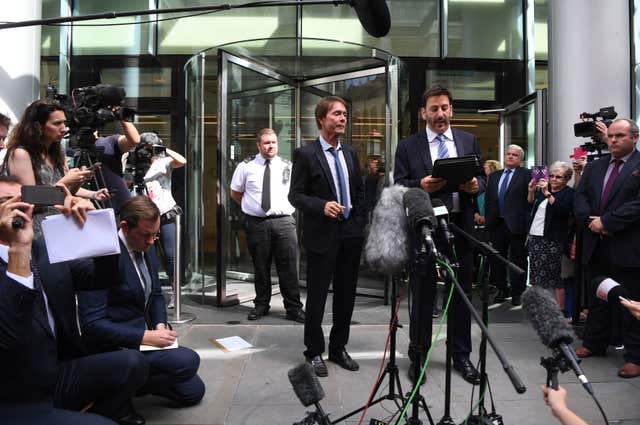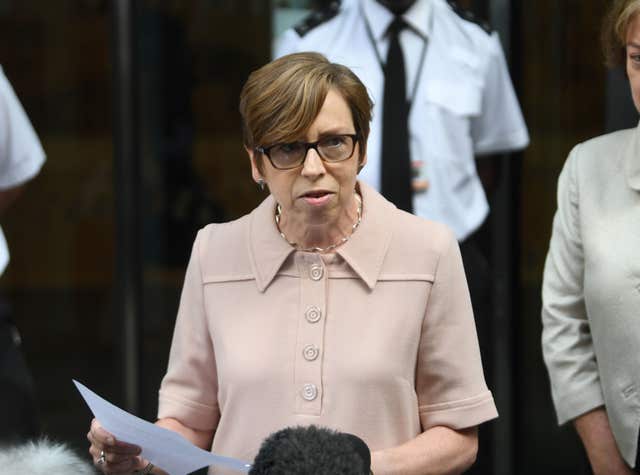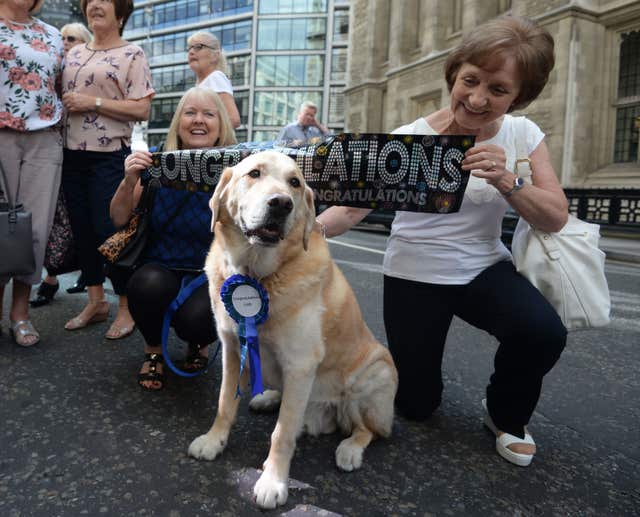Cliff Richard ‘choked up’ after winning privacy fight with BBC
The 77-year-old singer took legal action against BBC bosses over broadcasts of a police raid on his home after a child sex assault allegation.

An emotional Sir Cliff Richard has won a High Court privacy battle with the BBC over its coverage of a police search of his home.
A judge awarded Sir Cliff £210,000 – and he could get much more.
The 77-year-old singer hugged friends after the ruling and as he left court fans clapped and sang his hit song Congratulations.
“I’m choked up,” he said. “I can’t believe it. It’s wonderful news.”

Sir Cliff took legal action against BBC bosses over broadcasts of a South Yorkshire Police raid on his home in Sunningdale, Berkshire, in August 2014, following a child sex assault allegation.
Mr Justice Mann said the BBC infringed the star’s privacy rights in a “serious and sensationalist way”.
Fran Unsworth, the corporation’s director of news, said it is considering an appeal against the judgment.
Outside court Sir Cliff stood next to a lawyer who read a statement on his behalf.
The singer said it was “going to take a little while” as he was too emotional to talk, and added: “I hope you’ll forgive me.”
Lawyer Gideon Benaim said the singer never expected, after 60 years in the public eye, to have his “privacy and reputation tarnished in such a way”.
He said the BBC refused to apologise and insisted it had run a public interest story.
A BBC spokesman said: “This judgment creates new case law and represents a dramatic shift against press freedom and the long-standing ability of journalists to report on police investigations, which in some cases has led to further complainants coming forward.
“This impacts not just the BBC, but every media organisation.
“This isn’t just about reporting on individuals. It means police investigations, and searches of people’s homes, could go unreported and unscrutinised.
“It will make it harder to scrutinise the conduct of the police and we fear it will undermine the wider principle of the public’s right to know. It will put decision making in the hands of the police.

“We don’t believe this is compatible with liberty and press freedoms, something that has been at the heart of this country for generations.
“For all of these reasons, there is a significant principle at stake. That is why the BBC is looking at an appeal.”
Mr Justice Mann said he had awarded Sir Cliff £190,000 special damages, to cover the “general effect” on his life, and an additional £20,000 because the BBC had aggravated the damage by nominating the story for an award.
The judge has yet to assess how much the BBC coverage has left the singer out of pocket. Lawyers say that figure could be much larger than £210,000.
Sir Cliff had told the judge his plans for “professional work” had been “seriously disrupted”.
He said that in the years leading up to August 2014 he had worked regularly, released a new album every 18 months or so and usually played a number of concerts, but he been left “in effect in creative limbo” for two years.

Mr Justice Mann said he would oversee a hearing relating to that aspect of the case in the near future.
The judge oversaw a trial at the High Court in London during April and May.
Sir Cliff told the judge that coverage, which involved the use of a helicopter, was a “very serious invasion” of his privacy, and he wanted damages at the “top end” of the scale.
The BBC disputed his claims. Bosses say the coverage was accurate and in good faith.
Mr Justice Mann heard that, in late 2013, a man made an allegation to the Metropolitan Police, saying he had been sexually assaulted by Sir Cliff during an event featuring evangelist Billy Graham at Sheffield United’s Bramall Lane football stadium, in 1985, when he was a child.
Metropolitan Police officers passed the allegation to South Yorkshire Police in July 2014.
Sir Cliff denied the allegation. He was never arrested and in June 2016 prosecutors announced he would face no charges.
A BBC spokesman said the broadcaster reported Sir Cliff’s “full denial of the allegations at every stage”.
Mr Justice Mann heard that South Yorkshire Police agreed to pay Sir Cliff £400,000 after settling a claim he brought against the force.
Sir Cliff had initially sued the BBC and South Yorkshire Police.





